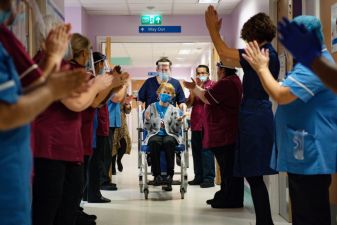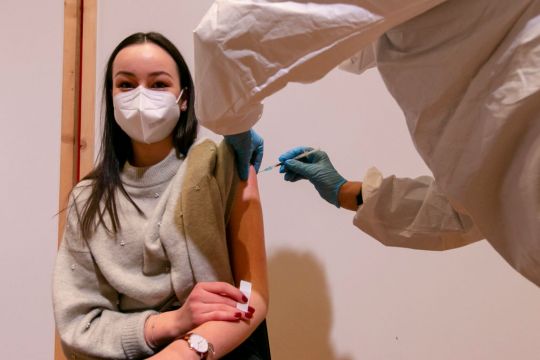One in five young women are uncertain about getting a Covid-19 vaccine, public health officials are to be warned this month.
A study by NUI Galway found that about seven in 10 women aged under 30 said they would get the vaccine, one in 10 said they would not and two in 10 were unsure about it.
Men in the same age group were more likely to be positive about getting vaccinated, with more than 80 per cent of men under 30 saying they intend to get the jab. This compared with just over 7 per cent who said they would not and 12 per cent who said they were unsure.
Dr Jane Walsh, a lecturer in psychology and director of the Mobile Technology and Health (mHealth) Research Group at NUI Galway, who carried out the research, said she suspected the higher hesitancy among young women may be related to concerns over fertility.
“The difference between men and women is particularly prevalent in Ireland,” she told The Irish Times. “But at this stage, it is only speculation that it could be related to concerns about fertility. We did not ask that question in the study.”
The NUI Galway study, carried out in collaboration with University of Huddersfield, polled 1,000 people online in Ireland and the UK about their attitudes and intentions in relation to Covid-19 vaccination programmes.
It found three-quarters of respondents intend to get vaccinated; 11 per cent said they would not; and 14 per cent said they were unsure.

In the over-30s group, 85 per cent of men indicated they would get a vaccine compared with 76 per cent of women.
The findings are to be presented to the behavioural change subgroup that advises the National Public Health Emergency Team in the coming weeks.
Dr Walsh said the study also showed that those who expressed uncertainty about being vaccinated were much more likely to be swayed by their peers or GP rather than by Government messaging.
The study also found that people were more likely to signal intention to get a vaccine if they had a higher trust in authorities; high satisfaction with government response to the pandemic; and if they were more likely to adhere to public health guidelines in general.







